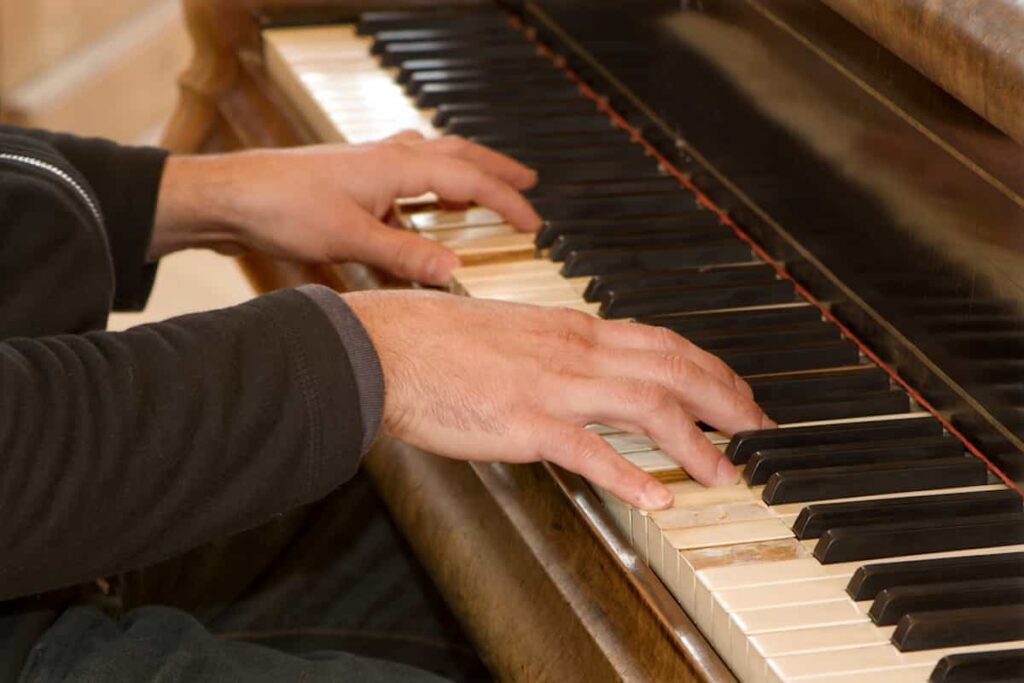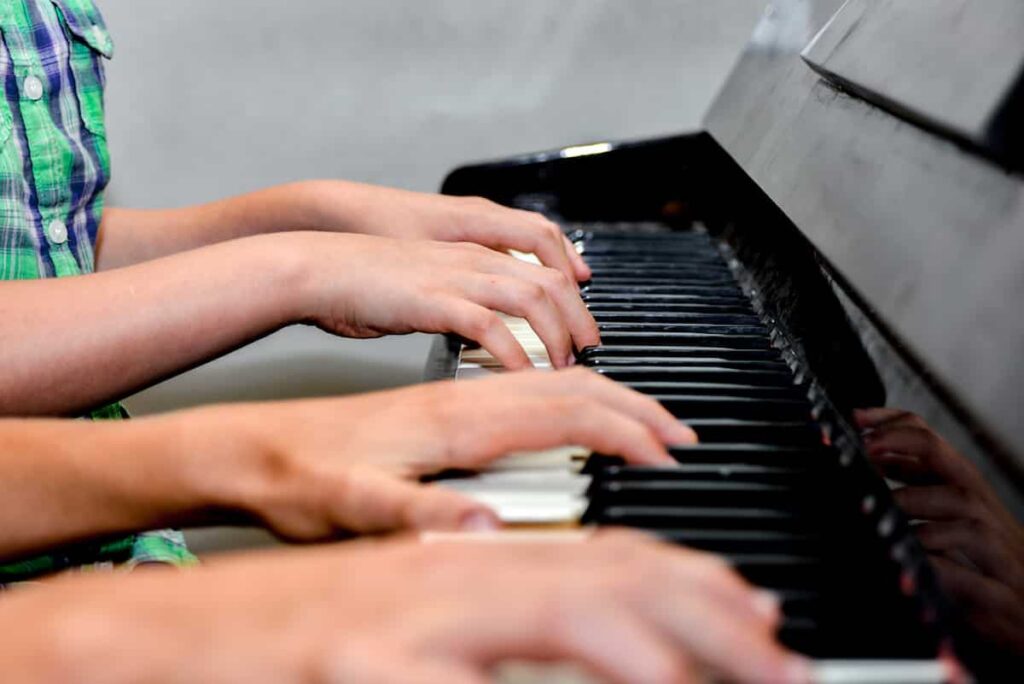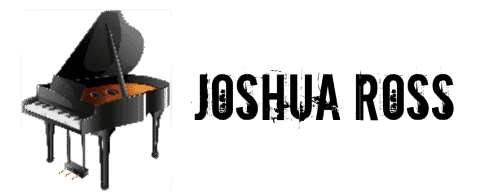As an Amazon Associate I earn from qualifying purchases.
Piano lessons are some of the best ways to get hands-on training to help develop your skill as a musician. It often works better than trying to do it on your own, especially if you’re a beginner. But also, it’s helpful for advanced students looking to make a career out of performing. Piano lesson costs vary, and some are more expensive than others. But why are piano lessons so expensive?
Piano lessons are expensive due to factors such as a piano teacher’s traveling costs, instrument maintenance, and the teacher’s expertise. Lesson materials, rental fees, and the student’s level may also impact the overall cost of the piano lesson.
Although piano lessons can be expensive, in most cases, it’s worth that extra cost if you can find the right teacher. Still, many factors play into the overall cost of lessons. Let’s dive deeper into what makes piano lessons and also some ways you can save money in the long run.
Want to Learn Piano?Click Here

Factors That Impact The Cost Of Piano Lessons
As I mentioned earlier, piano lessons can vary greatly in cost. Someone who charges $30 for lessons next door out of the home might only cost half as much as the local piano store charging $40 for the same quality lesson.
It doesn’t make sense to look at it broadly. However, it makes more sense when you get into the nuts and bolts of how a piano lessons business works. Having taught lessons for many years, it’d be helpful to put together a list of some of the main factors that impact lesson costs, making some more expensive than others.
Rental Fees
Depending on where you take your lessons, rental fees can sometimes be factored into your lesson costs. By this, I mean the fee your piano instructor pays to use their teaching space. That can be the mortgage if it’s a home setting or the rent at a local brick-and-mortar establishment.
These fees can be expensive, and it makes sense for the teacher to pass them along to their clients. In most cases, the fee would be minimal and not too noticeable. It can be the difference between a $30 and $35 lesson. And, in areas where fees for office space are really high, it can increase the lesson costs by as much as 20% over taking lessons in someone’s home.
Rental fees can also be for the piano itself. It’s common for piano teachers to rent pianos for their establishment to teach on. There are many programs where teachers can pay monthly to own an instrument and use it for that purpose.
If your piano studio offers recitals, those booking fees are also passed on to the students. Sometimes this is a separate recital fee, as some students may want to skip participating. And in other cases, it’s just built into every student’s lesson costs whether they choose to perform or not.

Profit Margins And Commissions
While piano teachers get into the business for the joy of educating students, it is still a business first. This means profit margins and commissions can become a major factor in the overall lesson cost. With rising inflation, it makes sense to see that the average cost of lessons has risen alongside the cost of living.
A good piano lesson business would try to keep the following structure:
- 45% to the salary
- 25% to emergency funds
- 40% to rental space
As you can see, what a student pays for the lesson sometimes goes partially to the teacher’s salary. A large portion of it has to go to savings to keep the business running. And, of course, a nice chunk goes to renting out the building space to teach those lessons.
When you view it that way, those $45/lessons turn into the teacher only, pocketing roughly $20!
The profits are sometimes worse if your piano lessons take place in a piano store. This is because, in many cases, the teacher will have to pay a commission to the store for that lesson.
I remember being offered a job in college to teach lessons in a piano store downtown. The lesson costs were $25, but I had to pay the store $5 for each lesson. As a young college student, those extra $5 in commissions was a lot of money at the time.
At the same time, I didn’t have to rent my own building or purchase instruments. Everything I needed was available to me. I passed on the offer because, seriously, what will a general music store do with those $5?
Compensation For Expertise
Learning the piano should be a great experience; if you want to get good at it, you need an exceptional teacher. The best piano teachers typically charge the highest rates. That’s not always the case, but for the most part, it is.
Piano teachers at the highest levels have exceptional backgrounds. They usually have the following:
- Multiple college degrees
- Performance experience
- Awards and accolades
- A proven track record of successful students
So, you can expect well-decorated teachers to charge in excess of $100 per lesson. Likewise, an old lady with basic piano experience might only charge you $25 per lesson. It all comes down to what you, the student, need from the lesson.
Is it just recreational playing, or are you seeking something more advanced? Be prepared to pay more for teachers that have the pedigree.

Age And Level Of The Student
Some piano teachers offer lessons based on age and learning levels. For example, there may be piano lessons for kids ages 5 to 18 and an adult piano lesson program.
Depending on your age, your lessons may cost more or less. I often see adult lessons cost less because there’s usually less labor involved there. Adult students tend to move slower and will end up playing less advanced music in most cases.
Some more advanced students will need more lesson time. So, 45 minutes to an hour long. Although these lessons cost more overall, there’s usually a 5 – 10% savings.
There are also lessons divided into program types. For example, beginner students could be part of a simple core program that teaches the basics. Their track will differ from the accelerated program where the advanced students are. Depending on the program, the cost will vary.
More advanced students require more work from the teacher in the lesson. This includes more playing demonstrations, writing and listening, and overall coaching. So, naturally, those lessons will cost more, but it’s worth it.
Materials
Back in the day, students were responsible for bringing their books and purchasing materials for piano lessons.
That’s still the case now, but the structure has changed quite a bit. It’s more effective for the place administering the lessons to provide the program materials and then to charge that as additional fees to the student’s payment account.
Materials can include the following:
- Lesson Books
- Printing paper and ink
- Binders and notebooks
- Metronomes
- Pencils and Markers
- Tape, Staples, and other small items
This looks like an office supplies list, and it basically is. But the benefit is that whatever the student needs, they can get directly from the teacher right away. Some of these fees are charged with every lesson, while others may only be charged when needed; for example, lesson books.

Instrument Maintenance
Remember, whenever you attend a piano lesson outside the home, you’re just one of many who are all playing the same instrument. This means the piano is getting more work than usual, and at some point, it will require some maintenance and repairs.
This includes:
- Cleaning supplies for the keys and finish
- Piano tuning and adjustments
- Instrument Insurance
All of those fees are expensive for a piano teacher. Piano tuning is the most expensive, ranging from $125 to $150 to tune. If the piano is damaged during a lesson, then this helps avoid having to charge a single student a lot of money to repair those costs. If those fees are passed along through everyone’s lessons, then it pays for itself without stressing the teacher or clients out.
So, naturally, this is passed on to the piano lesson costs, but usually just a small amount. I know of some teachers who charge a maintenance fee quarterly or yearly to their students. You see this more in tuition-based establishments where the overall fees are higher and charged upfront every month.
Travel To And From Lesson Locations
An often overlooked factor in piano lesson costs is travel fees. Many teachers are upfront about this, especially if the distance is outside their set radius. Most teachers are willing to drive up to 25 miles for lessons.
Going house to house for lessons is less popular than it once was, but it’s still a thing.
Ways To Save On Piano Lessons
So, have you found some piano lessons but found them to be too expensive? Well, you’re in luck. Try a few of the suggestions below to help save.

Take Online Lessons
Online lessons are a cheap way to get quality piano instruction. In many cases, the teachers will have all the same credentials you would expect: the degree, the experience, and much more.
Online lessons range from $25 to $50 per session, most on the lower end.
The only drawback of online instruction is that there needs to be an in-person experience. So, if you’re more advanced or even a beginner, it can be tough to understand hand placement and weight and get a good idea of the sound quality produced by the instrument.
Extra equipment is necessary for the student, such as a high-definition webcam and an external mic with noise-canceling capabilities.
Invest In A Quality Piano Course
You could opt for a standalone piano course if online lessons are different from your thing. Standalone courses are good because they allow you to learn at your own pace and on your own schedule.
Courses are the cheapest option because it’s a one-time fee. Piano courses range anywhere from $47 to $397, depending on the system’s involvement.
Some also involve ongoing coaching sessions that you can book for an additional fee.
For the most part, however, a piano course is just a one-time payment or operates off a yearly renewal fee.
Go With A Less Experienced Teacher
It’s important that when taking piano lessons, you pay for what you need. You may not need a world-class concert pianist or someone with many accolades.
All you may need is the next-door neighbor who can show you around the instrument and make you a competent player.
We all have different skill levels and commitments. If you’re not super committed to studying the instrument, you may want something more recreational. Maybe you want to play some simple songs for fun and not get into technical note-reading. That’s fine too.
Think about which tier you’re in and where you’d like things to go, and then take it from there!
Take Longer Lessons
The discount may be a little, but longer lessons tend to be priced lower, usually 5% at most. This is because it means less administrative work for the teacher.
Prepay Tuition
Some piano lessons can be prepaid because that money comes upfront; it’s typically easier to bargain a better price.
Get A Breakdown Of The Lesson Fees
If you plan to pay a lot for piano lessons, getting a breakdown of the lesson fees is important. Transparency is crucial in this avenue; you need to know where your money is going. If a piano lesson costs $60, how much goes to books, recital fees, or maintenance? Is it all-inclusive?
Those are important things to know. You can negotiate a lower rate by giving up a few things that are not all that important to you. For example, if you aren’t interested in recitals and weekly group classes, you could cut those fees out of the tuition.
Final Thoughts
As you can see, so much goes into the price of a piano lesson. It’s more complex than a random number. When people charge high fees for lessons, there’s typically a strategy to all of it.
In general, the more expensive lessons will lead to better coaching overall from the teacher. However, expensive piano lessons are only sometimes necessary, depending on your personal goals.
There are many ways to learn, so explore online options and courses if you’re trying to save!
Hello & thanks for stopping by! I’m a professional concert pianist and piano instructor. In the United States, I’ve given successful performances in several places including New York, Florida, Connecticut, & New Jersey, I have also performed internationally in Italy and made my Carnegie Hall debut in 2014. I enjoy blogging about the piano, the art of performance, general music, current events and the latest in music production.
